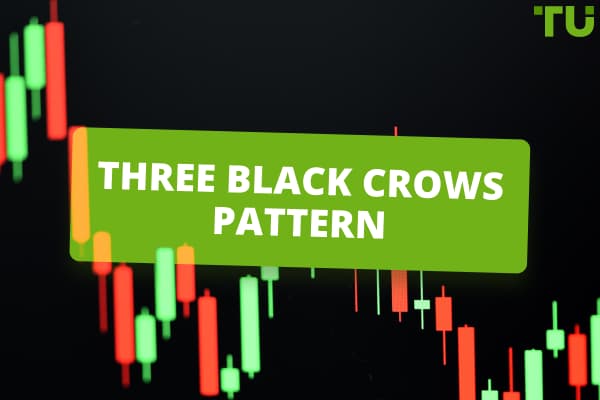How to Get Better at Forex Trading
5 tips to improve your Forex trading:
Keep your focus on long-term performance.
Simplify your approach and master a set of rules that you rigorously adhere to.
Continually learn and practice to stay updated with market trends and refine your trading skills.
Develop the right psychological mindset to manage emotions.
Allocate time to pause and analyze your trading activities.
Improving one's trading skills is a multifaceted endeavor, often contingent upon the specific challenges and issues a trader faces. In the Traders Union guide, experts address this complexity by offering a foundational, time-tested approach. This approach draws from the experiences of numerous successful traders worldwide, distilling their proven strategies and insights into a comprehensive resource. By embracing these tried-and-true methods, traders can enhance their skills and navigate the intricacies of the trading world with greater confidence and proficiency.
It’s always the right time to improve your skills
Improving one's trading skills is an ongoing journey, and it's imperative to recognize that success in the financial markets is anything but a constant. Unfortunately, many traders fall into the trap of perceiving temporary successes as the norm, mistakenly viewing them as the holy grail of trading knowledge.
In reality, statistics show that up to 90% of traders experience losses in the market, underscoring the need for perpetual skill enhancement. To navigate the ever-evolving landscape of trading successfully, we've compiled the top 5 tips to help traders redirect their focus in the right direction. These rules not only enhance your trading skills but also serve as a survival guide during periods of losses and help maintain the right mindset during prosperous times.
1 Keep your focus on long-term performance
Maintaining a focus on long-term performance is paramount for traders. The biggest risk in trading is viewing it as a quick money-making scheme. The harsh reality is that attempting to generate rapid profits often leads to over utilizing leverage, neglecting risk management, and engaging in excessive trading activity. Therefore, setting realistic goals right from the start is essential.
For example, a goal should sound something like, "My primary objective is capital preservation and adherence to my trading strategy. By adhering to these principles, I can potentially achieve profitability”. It's important to stress that trading should be viewed as a marathon, not a sprint. By emphasizing long-term performance and consistently adhering to a well-defined strategy, traders are more likely to attain sustainable success while avoiding the pitfalls of impulsive and high-risk trading practices.
2 Master your trading in the simplify
Many traders mistakenly believe that there exists a hidden and extraordinarily complex Forex trading strategy. In reality, 90% of your success relies on meticulousness, discipline, and strict adherence to risk management. There's no need to overcomplicate your trading rules to the extent that you can't follow them consistently in any situation. Always know precisely where you enter a position, where your stop-loss is, and where you take profit.
Remember that you can trade the simplest patterns that provide just slightly over 50% accurate signals, but proper and straightforward risk management will consistently guide you towards profitability.
3 Continually learn and practice
While perfecting your trading skills, it's crucial to understand that your education should never cease. Trading successfully means adapting to the ever-changing market landscape. Sure, trading might appear straightforward during strong trends, but markets often become highly volatile and range-bound. Therefore, you should always be open to exploring new trading tools and strategies.
The key here is to use a demo account as your laboratory for continuous learning and experimentation. This allows you to develop robust risk management rules and tailor position sizes to suit your evolving strategies. By embracing the mindset of perpetual learning, you equip yourself with the flexibility needed to navigate various market conditions effectively. Remember, the markets are always evolving, and traders who stay committed to learning are better equipped to thrive in this dynamic environment.
4 Build the right psychological mindset
Developing the right trading psychology to manage emotions is paramount. It's essential to consistently maintain a realistic perspective on the market and avoid being swayed by emotional swings. Understanding that opportunities present themselves daily and having the discipline to skip trades when necessary, reducing excessive risk-taking, and focusing on a long-term outlook can significantly improve your trading results.
To enhance your psychological preparedness, consider delving into valuable authors on trading psychology. Traders Union (TU) recommends reading their books as valuable resources to enhance your trading skills and psychological preparedness.
Mark Douglas is renowned for his pioneering work on trading psychology, with books that delve into the psychological mindset needed for successful trading.
Books: "Trading in the Zone”, "The Disciplined Trader: Developing Winning Attitudes”.
Brett N. Steenbarger, a psychologist and trader development expert, offers a comprehensive series of books covering various aspects of trading psychology.
Books: "Trading Psychology”, "Trading Psychology 2.0”, "Enhancing Trader Performance”, "The Daily Trading Coach”.
Jack Schwager's "Market Wizards" series features interviews with accomplished traders, offering valuable insights into their trading strategies and mental approaches.
Books: "Market Wizards" series (various volumes).
5 Allocate time to pause
Taking breaks is beneficial not only during successful trading periods but especially during a rough streak. Before comprehending the root of the problem or the reasons behind your success, achieving long-term results can be elusive.
During successful trading, pausing allows you to reflect on what's working well and refine your strategies. It prevents overconfidence and helps maintain discipline.
In contrast, during challenging times, taking breaks is crucial to prevent emotional decisions, assess losses, and regain a clear perspective. Only by understanding the underlying issues can you work towards consistent long-term success in trading.
Extra tip - keep you trading journal
Keeping a trading journal it’s your trading superpower in the context of improving trading skills. It’s valuable practice because it serves as a detailed record of your trades, helping you analyze mistakes and cultivate the right attitude. By meticulously documenting your entries, exits, reasons for trade, and emotional states during each transaction, a trading journal allows you to identify recurring errors, patterns, and emotional triggers. This objective self-assessment fosters a disciplined mindset, enabling you to learn from your mistakes, refine your strategy, and ultimately become a more skillful and emotionally resilient trader.
Best Forex brokers 2024

FAQs
Is Forex trading difficult to master?
Forex trading can be challenging to master, but it is possible with the right approach. The primary mistake lies in traders losing money due to setting incorrect goals and approaching trading with the wrong mindset. By diligently focusing on skill development, adopting a disciplined attitude, and emphasizing proper risk management, traders can navigate the complexities of Forex and work towards mastering this dynamic market.
How can I improve my trading skills?
You can improve your trading skills by regularly practicing with a demo account, studying market analysis, refining your strategy, managing emotions, and keeping a trading journal to learn from your mistakes.
What skills do Forex traders need?
Forex traders need skills in technical and fundamental analysis, risk management, emotional control, adaptability, and discipline to succeed in the dynamic Forex market.
Is Forex a skill or luck?
While luck may play a role in individual trades, consistent success depends primarily on developing and applying the skills required for effective analysis, risk management, and strategy execution.
Glossary for novice traders
-
1
Cryptocurrency
Cryptocurrency is a type of digital or virtual currency that relies on cryptography for security. Unlike traditional currencies issued by governments (fiat currencies), cryptocurrencies operate on decentralized networks, typically based on blockchain technology.
-
2
Leverage
Forex leverage is a tool enabling traders to control larger positions with a relatively small amount of capital, amplifying potential profits and losses based on the chosen leverage ratio.
-
3
CFD
CFD is a contract between an investor/trader and seller that demonstrates that the trader will need to pay the price difference between the current value of the asset and its value at the time of contract to the seller.
-
4
Extra
Xetra is a German Stock Exchange trading system that the Frankfurt Stock Exchange operates. Deutsche Börse is the parent company of the Frankfurt Stock Exchange.
-
5
Volatility
Volatility refers to the degree of variation or fluctuation in the price or value of a financial asset, such as stocks, bonds, or cryptocurrencies, over a period of time. Higher volatility indicates that an asset's price is experiencing more significant and rapid price swings, while lower volatility suggests relatively stable and gradual price movements.
Team that worked on the article
Andrey Mastykin is an experienced author, editor, and content strategist who has been with Traders Union since 2020. As an editor, he is meticulous about fact-checking and ensuring the accuracy of all information published on the Traders Union platform. Andrey focuses on educating readers about the potential rewards and risks involved in trading financial markets.
He firmly believes that passive investing is a more suitable strategy for most individuals. Andrey's conservative approach and focus on risk management resonate with many readers, making him a trusted source of financial information.
Also, Andrey is a member of the National Union of Journalists of Ukraine (membership card No. 4574, international certificate UKR4492).
Dr. BJ Johnson is a PhD in English Language and an editor with over 15 years of experience. He earned his degree in English Language in the U.S and the UK. In 2020, Dr. Johnson joined the Traders Union team. Since then, he has created over 100 exclusive articles and edited over 300 articles of other authors.
Mirjan Hipolito is a journalist and news editor at Traders Union. She is an expert crypto writer with five years of experience in the financial markets. Her specialties are daily market news, price predictions, and Initial Coin Offerings (ICO).












